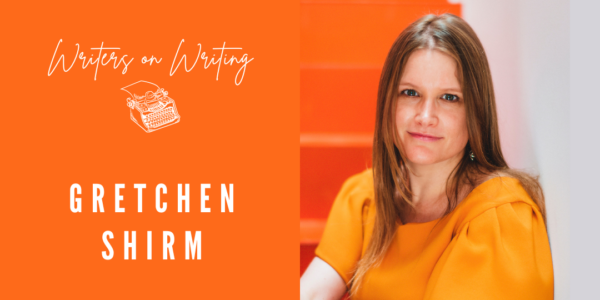
What distinguishes the short story from other forms of writing? What can they achieve that other literary forms perhaps cannot?
The length of the short story form is its defining feature, in the sense that because of the length, everything matters. In the novel, there is space to take detours, to examine different ideas, to explore different tones and rhythms; in that way it is a much more forgiving form. In the short story, everything contributes to the whole, and in that way it is a model of narrative in miniature form. It’s the most penetrating of fictional forms, because the sense of change, of movement, of crystallization is more acute, because it happens quickly, within a short space of time; for that reason the reader’s sense that they have witnessed something dramatic is heightened.
You say that “endings are often defining of the short story form.” How might writers approach endings in their own short fiction?
I once heard Anne Enright say that in the short story you aren’t writing for the last line, but for what happens in the reader’s mind in the silence after the short story ends. In a short story, the ending should hover over everything that has come before it, and contribute to the meaning of the whole in some essential way. I often think of the ending of a short story as the striking of a bell — a certain resonance is created when the ending is read, and the reader puts things together in their own mind. When the ending of a story is ‘right’, the whole thing thrums and takes on a new meaning.
How does Ernest Hemingway’s ‘iceberg’ theory apply to short stories?
The iceberg theory applies to all good writing, but because the short story is a model of narrative in miniature, it is particularly noticeable in this form. The iceberg theory is about how language can work by implication — how readers can get a sense of things that remain unspoken in the story itself. Writing that doesn’t spell everything out, that trusts the reader to make sense of what’s not there but is gestured towards is, in my opinion, the most powerful form of writing, because it invites the reader to help co-create the story as they read.
Who are some short story writers that you admire?
My all time favourite short story collection is Helen Garner’s Postcards from Surfers. Garner does something radical in that collection, which is to do with what she leaves out — some of the stories in that collection are just breathtakingly spare, but contain so much emotional heft through Garner’s exquisite and precise prose. Elizabeth Strout’s linked stories are also a real touchstone for me — I love how connected everything is in Strout’s stories, how one person’s interpretation of events can quickly be undone by another perspective. Lauren Groff’s Florida, Anne Enright’s Taking Pictures, and Jennifer Down’s Pulse Points are also favourites of mine.
Gretchen Shirm is a Sydney-based author and critic. She is the author of three works of fiction: Having Cried Wolf, Where the Light Falls, and most recently, The Crying Room. Her short fiction has been anthologised in Meanjin, Overland, Griffith Review, and Best Australian Stories amongst other places. Her novel Out of the Woods, about her experience working at the International Criminal Tribunal for Former Yugoslavia, is forthcoming in April 2025.
If you want to be the first to read great advice from our incredible tutors, subscribe to our weekly e-newsletter Newsbite.
More from Writing NSW
Check out our full range of in-person writing courses in Sydney, our online writing courses and our feedback programs to see how we can help you on your writing journey. Find out about our competitions & opportunities, as well as writing groups across NSW, and sign up to our weekly newsletter for writing events, opportunities and giveaways.
